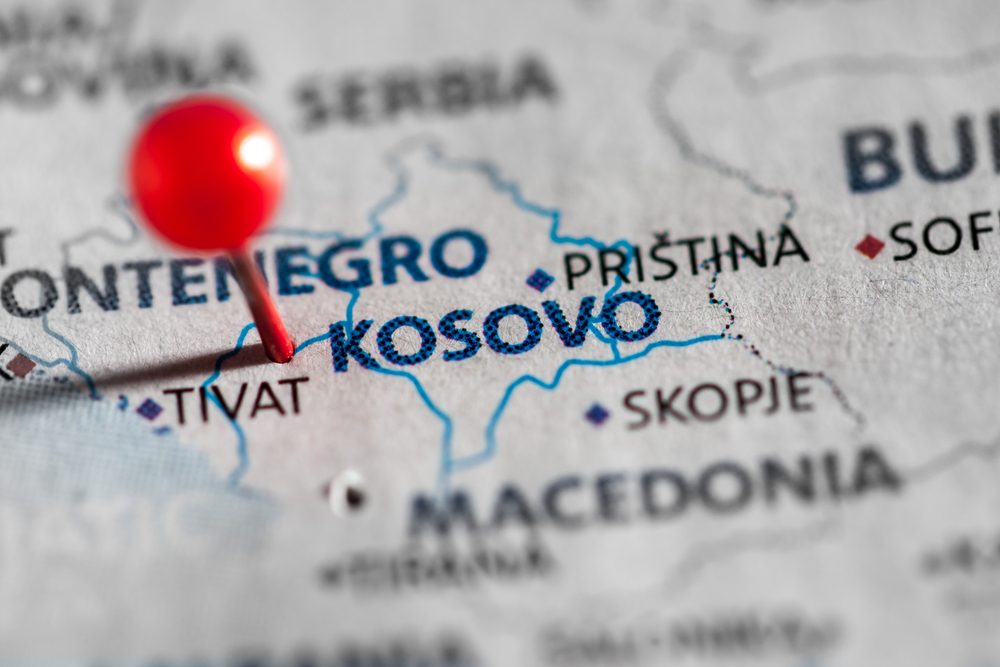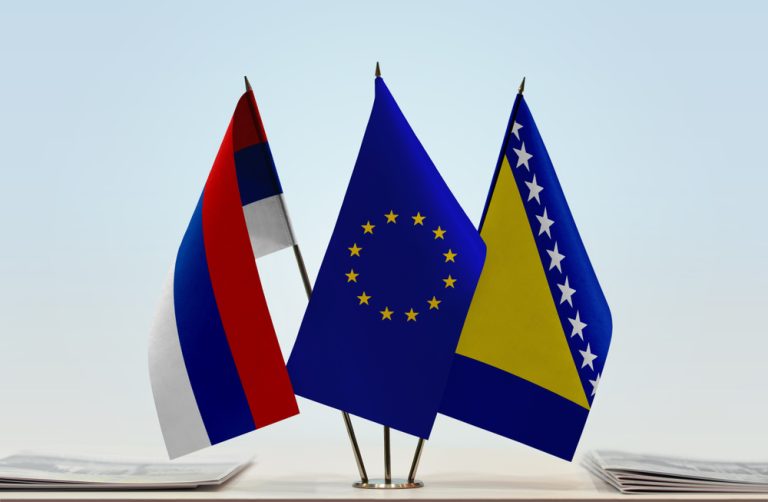
“Elections” in Kosovo: Farce and Collapse of Western Democracy
On April 23, elections organized by the unrecognized government in Pristina took place in four predominantly Serb-inhabited municipalities in Kosovo and Metohija. The Serbian majority defiantly ignored the electoral farce, which the U.S. embassy only bashfully regretted. Kosovo Albanians, as a creature of true Western democracy, only cheerfully reported that their compatriots were now occupying all the posts of head of administration.
In Kosovo, practically detached from Serbia, the last bastion of Belgrade power is the so-called “Serbian municipalities”. These are settlements in the northern part of the province, where, after the war, mass pogroms, and ethnic cleansing since the 1990s, the majority of the population is still Serb. One of the points of the EU-brokered agreement between Belgrade and the separatist Pristina is the creation of the Community of Serb Municipalities.
Kosovo Serb leaders called for a demonstrative boycott of the elections organized by the government of Prime Minister Albin Kurti on April 23. And that’s exactly what happened. Erden Atić became the head of the northern part of Severne Mitrovica, Izmir Zeqiri became the head of Zubin Potok, Ilir Peci became the head of Zveçan, and Ljulzim Hetemi became the head of Leposavić. One can guess from their last names that they are all ethnic Albanians. 1,566 Albanians and only 13 Serbs took part in the election, while the number of Serbs is about 50,000.
In Serbian there is a word “inat,” which means roughly “to do evil,” including to oneself. The election boycott in the Serbian municipalities can partly be described as this very act of powerless anger. The Serbs’ refusal to vote did not open the eyes of the West to the failure of democracy in the province, although this could hardly be said from the beginning of the separation of Kosovo from Serbia by Western countries. The Albanians were quite satisfied with the “gift” of an easy victory and continued to dismantle the last Serbian institutions in the municipalities they got during the electoral farce.

So, in Štrpce, the Information and Privacy Agency announced the removal of cameras on the streets. No, this is not a joke. The Albanians’ security system simply works according to a slightly different principle: if an offence is not recorded, then it didn’t happen. The video surveillance cameras are an extreme hindrance to this “professional” approach. The work of the Serbian Red Cross in the village of Vranishte is also hindered by the Albanians, since it is not registered under local law. The newly elected heads of municipalities, Zubin Potok and Leposavić, have promised that the first thing they will do is to take Serbian flags off all the buildings, and replace them with signs of the self-proclaimed and unrecognized Kosovo. Kurti is also going to lobby for a law that will allow the seizure of any land into the ownership of the local “police,” citing national security concerns. The question, however, is which nationality’s security and rights will be threatened, but it is more of a rhetorical question.
While the U.S. was quite satisfied with the “elections” with minimal regret, Brussels, the mediator in negotiations between Belgrade and Pristina, criticized the events of April 23. But it was not the electoral farce that upset the EU, but its boycott by the Serbs. However, after another round of negotiations in Brussels on May 2, Peter Stano expressed his dissatisfaction with the fact that the Albanians were not complying with the agreements reached earlier. It was about the Community of Serb Municipalities. But now that the Serbs have withdrawn from their last institutions through the boycott, there are questions about the expediency of creating the Community and in general about the quality of its functioning in the future. Will it be Serbian municipalities controlled by Albanian “mayors” and Kosovo’s “police”? The only idea, accepted by the West, about preservation of the last stronghold of the Belgrade presence in Kosovo and Metohija turns into a farce.
Meanwhile, the Albanians, having finished with the Serbian institutions of power, are preparing to start with the Serbs themselves. After the pogroms in 2004, the bridge in Kosovska Mitrovica between the two ethnic parts of the city was closed as a precaution. Now, the bridge over the Ibar will be opened, the Albanian security forces will set up a roadblock there, and they will probably be ready to rush into the Serbian areas for more pogroms at any time. The KFOR mission in Kosovo has no objection. Besides, Pristina will soon have another serious ally behind its back: NATO. “Defense Minister” of the unrecognized republic Armend Mehaj has already said that the participation of the security forces of Kosovo in the international exercise Defender Europe 23 with the countries of the North Atlantic alliance is a step on the way to the organization. It is possible that very soon the “security forces” will gradually turn into a full-fledged “Defense Ministry”. In addition, Turkey recently delivered five unmanned drones Bayraktar to the Kosovo Albanians.
Against the background of what is happening in Serbia, there is suddenly a series of mass shootings with a large number of victims, which forces the authorities, first of all for some reason, to deal with the seizure of weapons from the population. At the press conference on May 5, after returning from the Brussels talks on May 2, Aleksandar Vučić promised to disarm the legally armed Serbs. The number of civilian shooters would be reduced from 400,000 to 30,000, and citizens would not be able to buy guns for two whole years. Whether Belgrade is afraid of its own people or deprives ordinary Serbs of the opportunity to defend themselves (especially in Kosovo and the surrounding areas) is an open question. However, it is more relevant than ever after the elections in the Serbian municipalities, which will be only a prologue to the final surrender of the region to the Albanians with the strongest protection of the West.

